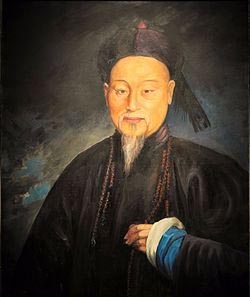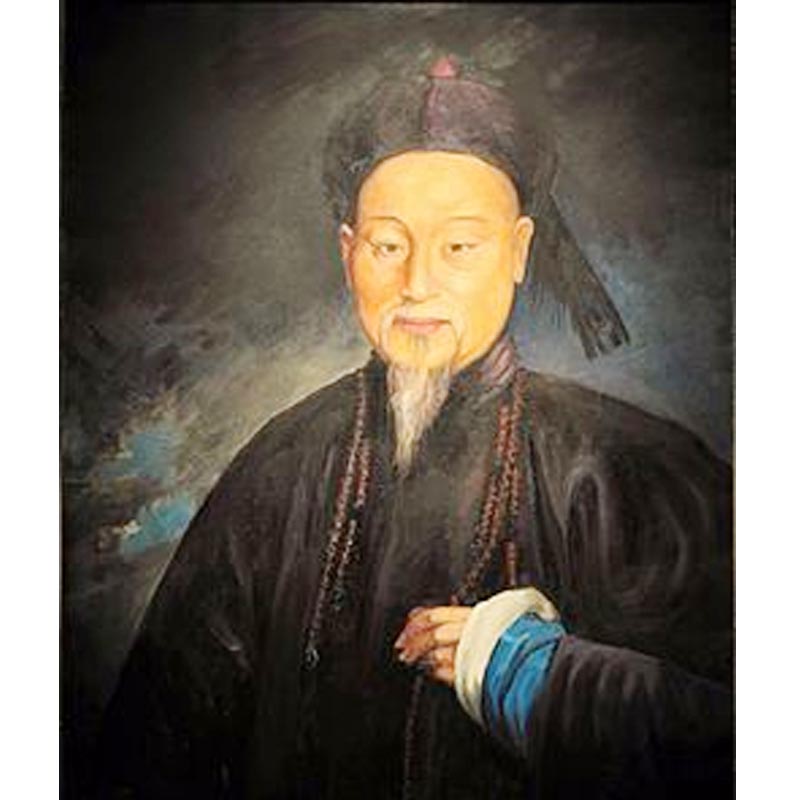
Lin Ze Xu (林則徐 Aug. 30, 1785-Nov. 22, 1850) was a Chinese scholar-official of the Qing Dynasty best known for his role in the First Opium War of 1839-1842.
On June 3, 1839, Lin Ze Xu ordered the destruction of opium. By June 25, all opium, totaling 2,376,200 jins (斤 or half a kilo) had been destroyed.
Two big square pools, 15 zhang (丈or 3.33 meters) per side, had been specially built at Hu Men (虎門) Beach for this purpose. Each had a culvert at the front and connected to the canal at its back.
Water was poured into the pools first. Salt was then scattered across them to make the brine, after which crude opium was cut and thrown into the pool to soak.
Finally, lime was used to burn the narcotic. When the seawater receded, the culverts were opened, so the seawater would wash away the destroyed opium and rinse the pools.
During the days of opium destruction, common people from near and far, even merchants from Hong Kong and Macau, thronged Hu Men Beach. They clapped and cheered, celebrating the total destruction of opium.
Lin Ze Xu, who took charge of the task, was then the governor of Hu Kwang (湖廣, the provinces of Hainan and Hubei). He had long warned about the enormous harm of opium to China: After a few decades, China would not have soldiers to resist the enemy, and the national treasury would have no more funds to operate.
Thus, he was ordained as the special envoy of the emperor and sent to Guangzhou (廣州) to raid and ban opium. He adopted stringent measures to neutralize opium traders and set a deadline for foreign opium traders to surrender all their drugs.
Lin Ze Xu was so resolute not to let opium poison the Chinese people. Upon watching 19,179 boxes and 2,119 bags of opium being destroyed, he smiled.
The destruction of opium at Hu Men demonstrated the resolve and will of Chinese people against foreign imprudent invasion through opium. Nevertheless, after the destruction of opium mainly traded by the British, England retaliated by waging the so-called Opium War with China in 1844.
The Qing government lost the war and was forced to sign the unequal Nanjing Treaty (南京條約) in 1842, which yielded Hong Kong to England until this was returned to China in 1997.
The opium war signaled China’s slide into a semifeudal and semicolonial state until 1949 when the People’s Republic of China was established.





